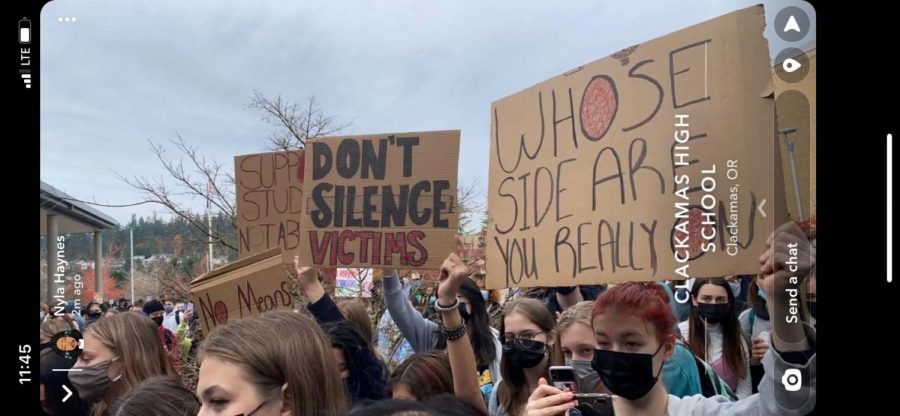A Compass Editorial
A Call To Action
The collective and constantly emphasized goal is to make school feel like an environment where everybody is welcome and every voice is heard. Yet, it seems that communication and community within the student body have lacked now more than ever.
Social media has varied the ways in which failing communications can harm students. A trend that originally began with “bad parking” Instagram accounts–in which the account holder would take pictures of cars parked awkwardly in the school lot–has transformed into various accounts posting pictures of students eating, sleeping, or of their shoes in the bathroom. While disguised by the supposed playfulness of the accounts, this is a serious issue of harassment and has only grown in prevalence since its inception.
Students are not discussing with one another the problems that they are seeing around them, or are often ignoring those who do try to discuss issues that they are experiencing. Problems such as the Instagram accounts and the lack of transparency between students and staff can cause severe issues for everyone involved. Anxiety, self-consciousness, and insecurity about having a picture of you taken and posted online can lead to more problems in the future, and the people creating these accounts could get into serious trouble for taking those pictures, creating frustration and bad experiences for everyone involved.
With that being said, there is little that a school board can do about social media accounts since the guidelines of the app are out of their control. We, NCSD students, are the demographic most experienced with and connected to the issue. Therefore, we must be the ones to hold each other accountable and seek a hands-on approach towards finding solutions to problems such as these, instead of simply delegating them to a group of adults who hold less power over the matter.
The blame for a lack of action is often put on the lack of communication that the administration has with students, but administrators argue that they can only share so much. “There are always two things we have to balance. One is providing information to students because of their safety, and the other is protecting the privacy and rights of all those involved,” says Nelson High School Principal Greg Harris.
This is a gray area that administrators have to be careful with. According to Clackamas High School Interim Principal Paula McCullough, it is often a legal matter. Admin wants their students to stay well-informed, but protective status–whether it’s age, attorney involvement, or extenuating circumstances–ties their hands together with certain relevant information.
“We want students to know as much as possible and we understand that we understand that we break a trust if we can’t give them everything. Their perception is that we’re not trusting the students by giving them this information. And the reality is that’s not true, it’s just that we’re bound by different legal aspects. We understand and wish we could share more but our hands are tied in certain circumstances,” says McCullough, emphasizing that school staff are also in our position.
Both principals encourage students to reach out to them when there is a sense that information is being withheld and that communication should go both ways.
Students have in fact held one another accountable in previous circumstances. When word got out about an alleged incident involving sexual assault on a student, Clackamas High students banded together to protest the alleged incident and raise awareness by holding a protest in front of the school in November 2021 and spreading information about sexual assault safety through social media. Together students were able to make their voices heard and made a greater impact by standing up for young people affected by sexual assault and holding the alleged perpetrator accountable.
It starts with students taking accountability for toxic behaviors that are normalized. It starts with student leadership organizations actively communicating with the rest of the student body in order to address and combat issues within our community, rather than a year spent fully immersed in planning fun events and assemblies. Most importantly, it starts with the people who have a lot to say, but believe that their opinions don’t matter. True change starts when the voices in the back of the room step forward and when we realize that we don’t need administrative permission or instigation in order to make a difference.

